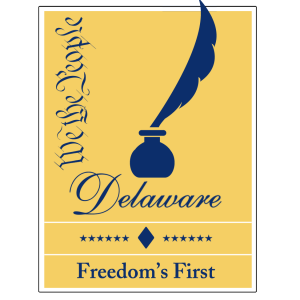Special Initiative on Offshore Wind Provides Updates on Markets, Pricing
The opportunities and challenges ahead for Delaware as it explores the possibilities of the state entering the growing offshore wind industry are outlined in a new report prepared by University of Delaware researchers for the Delaware Department of Natural Resources and Environmental Control.
DNREC Secretary Shawn M. Garvin wrote to ask UD’s Special Initiative on Offshore Wind last year to conduct analysis of market trends, economic viability including future price points, supply chain and workforce development opportunities, and technical obstacles and options for the possible procurement of offshore wind to serve Delaware. The chairs and vice chairs of the General Assembly’s Senate Environment and Energy Committee and the House Energy Committee later also encouraged SIOW to conduct the study. The study’s objectives were outlined in a memorandum of understanding between DNREC and the SIOW.
The state’s Offshore Wind Working Group’s 2018 report highlighted several options for further consideration, including the state waiting for more developers to enter the market, an incremental approach to wind power, and evaluating other renewable sources. In requesting SIOW’s help, DNREC was interested in updating the opportunities and challenges of offshore wind to inform decisions by state leaders regarding the possible procurement of offshore wind power and related issues.
“While it does not address all of the options put forward by the Governor’s Offshore Wind Working Group, this new report provides insights into current market conditions, outlines policy options for Delaware, and identifies important tradeoffs based on priorities determined by the Governor and state legislature,” Secretary Garvin said. “The report, along with the findings put forward by the Offshore Wind Working Group, are essential pieces that will help ensure we make the right decisions moving forward.”
Among the report’s findings:
- Projected offshore wind power prices fall within the range of wholesale power being purchased for Delaware now.
- Offshore wind power costs less than half of Delaware’s current electricity supply when the social costs of health and climate impacts are included.
- Health damage from polluting power plants is very real, as are health savings from adding new renewable energy.
Kris Ohleth, SIOW executive director at the University of Delaware, said the report provides information on different approaches to offshore wind development.
“If Delaware decides to create a procurement for offshore wind, the state will develop its own approach based on its priorities,” Ohleth said. “This report describes potential policies and opportunities and quantifies their relative effects on the cost of electricity.”
Delaware has set a target of achieving 40% renewable energy by 2035. In addition, shifting to renewable energy is among the strategies identified in Delaware’s Climate Action Plan to reduce the harmful greenhouse gas emissions that are driving climate change.
DNREC will continue to study and evaluate all the options and the technical challenges involved in connecting offshore wind to the power grid. The SIOW report, as well as the previous work from the state’s Offshore Wind Working Group, can be found at de.gov/offshorewind.
About DNREC
The Delaware Department of Natural Resources and Environmental Control protects and manages the state’s natural resources, protects public health, provides outdoor recreational opportunities and educates Delawareans about the environment. The DNREC Division of Climate, Coastal and Energy uses science, education, policy development and incentives to address Delaware’s climate, energy and coastal challenges. For more information, visit the website and connect with @DelawareDNREC on Facebook, Twitter or LinkedIn.
Media Contacts: Nikki Lavoie, nikki.lavoie@delaware.gov or Jim Lee, JamesW.Lee@delaware.gov
###
